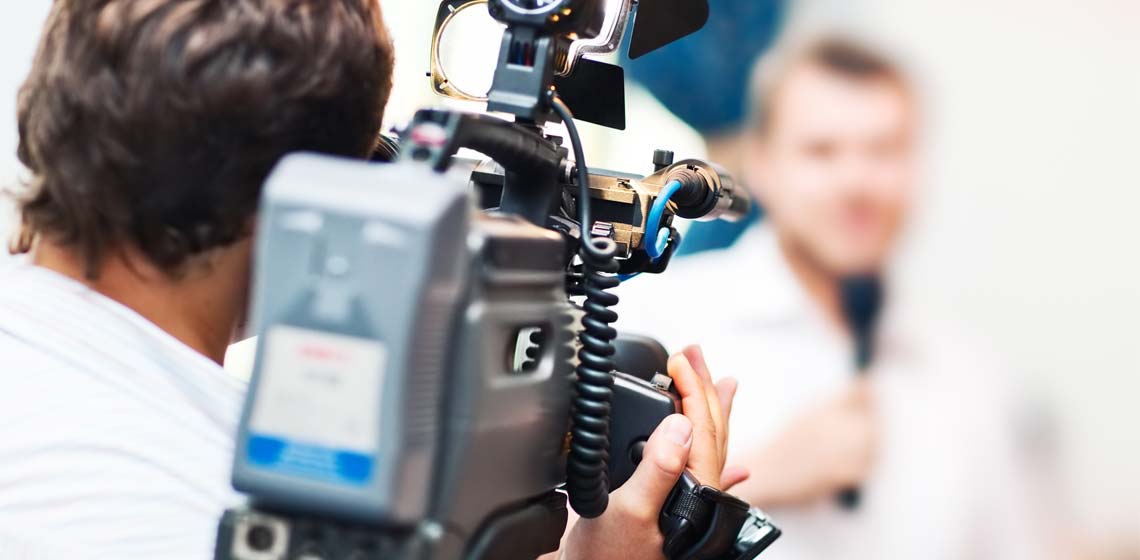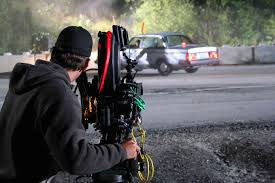
Questions That You Need to Ask Your Videographer Before You Book
Partnering with the right videographer for your project is essential to the success of your video campaign. Choosing the wrong one can lead to disaster, miscommunications and wasted expenses that could have been better spent if you had chosen differently. You don’t’ want to waste your money, time and other resources with videographers who can’t help you to realize your vision as it’s intended. That’s why it’s so important to be diligent in your selection from available videographers.
Before making your final choice, you should interview several candidates for the job. To help you get started, we’ve compiled a list of questions that you should ask those you do interview. We’ll also discuss why these questions are so important to ask.
10 Questions to Ask a Videographer
 Asking the right questions is important, but there is no such thing as a “wrong” question. Consider this list to be a starting point, not the end all, be all of inquiries. If you have any additional questions in mind, don’t be afraid to speak up!
Asking the right questions is important, but there is no such thing as a “wrong” question. Consider this list to be a starting point, not the end all, be all of inquiries. If you have any additional questions in mind, don’t be afraid to speak up!
Question 1: How Often Do You Do These Kinds of Projects?
You want to make sure that the videographer is adequately experienced in the field that you are involved in. Videographers work with all kinds of industries, but most will have specialties that they focus on. Instructional videos, non-profit PSAs, commercials, short films, wedding videography, and concert videography are some examples of the wide assortment of specialties possible. You don’t want to have your exercise video in the hands of someone who only excels at wedding videography, for instance.
Question 2: Do You Work with Others in the Area?
Videographers may work with other professionals to get the best outcomes for their clients. The most experienced ones have forged professional relationships in the area, which can be put to use for you. Some relevant industry pros are photographers and writers. When they partner with you and your videographer, the result is a more well-rounded video.
Question 3: What Restrictions Do You Have?
While it is ultimately a videographer’s job to ensure their client’s vision is achieved, there are some videographers who have fast rules and standards that they adhere to and will not bend for anybody. Before you book a videographer, you need to know what these rules and standards are. Otherwise, you might have to sacrifice some important aspects of your initial vision to work with them.
Question 4: What is Your Pricing Structure?
Most videographers will charge a flat rate for the time spent on your project, but if there are additional features that you require, you can expect to be made to pay an additional amount. There might be a series of packages on offer, which will vary in price. If you’ve chosen the videographer’s standard package, it helps to get an itemized list showing what’s included and what’s not.
Question 5: Have You Shot at this Venue Before?
If your video is going to take place in a designated location, it helps to have someone working for you who is familiar with the venue. If the videographer doesn’t know the location themselves, this isn’t a deal-breaker. They should, however, be open to touring the area prior to the shooting date so that they know what they’re working with when the session comes.
Question 6: Are You 100% Free on the Day I Need to Shoot?
Sometimes videographers do have very full schedules, often resulting in two or more bookings on the same day. If your project could be time-intensive, you might want to make sure that the videographer is totally available on the chosen date.
Question 7: What Equipment Do You Use?
Videographers make use of different types of equipment, which will depend on the nature of the project. Your videographer may recommend the use of lighting or sound equipment, for example, which may lead to additional charges. Most videographers will have this equipment themselves. Alternatively, they may have access to this equipment through a third party.
Question 8: Will There Be Secondary Cameras/Videographers?
Some projects are best accomplished when there are multiple cameras and multiple people to handle them. Different angles can be critical to the visual impact that the video leaves on its target audience, so this is worth inquiring about before you commit to booking the videographer.
Question 9: How Long Have You Been a Videographer?
Amateur videographers can be great, but an experienced one has the best eye for details, lighting and composition. You should ask about their length of experience within their industry, what types of videos they have contributed to the production of, and what they feel their strengths and weaknesses are as a videographer. Another great way to gauge whether the videographer is going to be a good fit for your project is to view some examples of their prior work.
Question 10: How Would You Describe Your Shooting Style?
Every videographer, just like every photographer, has their own style that is imbued in every video they are involved in the production of. This is another thing that you can get a feel for by viewing their prior work, but it pays to ask them to describe their own unique style. Some videographers, for example, take a more cinematic approach than a journalistic one. Cinematic style results in a production with more movie-like qualities. A journalistic approach to videography, on the other hand, lets the content speak more for itself. Whichever you choose will depend on your particular vision.
Choosing the Right Videographer is Important
These 10 questions are only to be considered a starting point for individuals looking to hire a videographer for their upcoming projects. If you have other questions burning at the back of your mind, feel free to ask the videographer for their input. You should never sacrifice your vision when choosing a videographer, so it pays to know what you could be dealing with before you make a commitment to a video professional.

What are the Qualities of a Great Video?
In the tech-intensive 21st century, it simply isn’t enough to throw together a video without much thought and consideration. Audiences have a refined taste that has been curated by the extent of the technology that’s been made accessible to all of our fingertips. If you want to create a video that truly reaches and engages your target audience, you need to focus on overall quality. And that can only be done if you pay attention to the details.
What details are we talking about? Continue reading to learn more about the qualities that make for a compelling video, whatever kind of video you’re producing.
How to Take Your Video from Good to Great
Sure, the content of your video can speak for itself despite any quality issues. But discriminating audiences may turn up their noses if they aren’t satisfied with every aspect of what they’re viewing. Here are some things that you should keep in mind if your desire is not only to reach your audience, but to engage them in any kind of meaningful way.
A Solid Script
 The words used in your video mean nearly everything. The script not only determines what is said on-camera, but also conveys the tone that you want associated with your brand. The language in your video answers the viewer’s questions while being phrased in a way that pulls them in and makes them want to continue watching. Your script should be informative as well as entertaining.
The words used in your video mean nearly everything. The script not only determines what is said on-camera, but also conveys the tone that you want associated with your brand. The language in your video answers the viewer’s questions while being phrased in a way that pulls them in and makes them want to continue watching. Your script should be informative as well as entertaining.
Perhaps most importantly, your message should be delivered in a concise and confident manner. Viewers are looking at your video to get information. Drawing out the message for the sake of a longer run time is just going to make them click away.
Knowledge of Your Audience
Of course, it is essential that you know who you are trying to reach out to. No enterprise is going to have “everyone” as their target audience. Whether you’re targeting a small niche audience or a much grander one, it will pay off to create your video with this group in mind. This will inform the language and imagery used in your video.
Create a Deeper Understanding
Yes, listing off accurate information about your brand is essential to making a solid video, but that’s not all. Viewers should be made aware of how the subject matter relates to their lives. After all, how useful can any information you give be if nobody can figure out how it applies to them? Use examples and situations to convey the relevance of the subject matter. This will further engage the audience and make them feel that you genuinely care about the people you’re reaching.
Use Visuals Expertly
Sure, having a spokesperson addressing the audience plainly can be an effective strategy in a video. But doesn’t that get a little dull? If you’re trying to describe an exercise, for example, isn’t it much more useful to show the exercise either via photographs or live video rather than a 100-word description? We certainly think so. And we can guarantee that your audience does, too.
Keep it Light
Solemn and somber certainly is the right approach for some subjects, but not for advertisement or informational videos about products and services. A light-hearted video full of positive energy is usually the best way to reach your audience and reel them in so that they continue watching. Your video should be enjoyable, not a bummer.
Choose the Right Music
Even if you don’t notice it outright, nearly every video that you watch contains music – either in the foreground or the background. Music assists in setting the ambience, factoring into the overall mood and helping to engage viewers so that they watch until the end. You’ve got a multitude of effective choices available to you, from epic orchestral tunes to a whimsical little ditty.
Carefully Plan the Presentation
 If your video involves a presenter, make sure that the speaker is capable of effectively delivering your message. If necessary, you can hire a professional to bring their unique flair to the video presentation. After all, the words are only as powerful as the delivery used to express them.
If your video involves a presenter, make sure that the speaker is capable of effectively delivering your message. If necessary, you can hire a professional to bring their unique flair to the video presentation. After all, the words are only as powerful as the delivery used to express them.
This is also true of any text that you may use in your video. If you’re accompanying the presentation with text or you’re implementing subtitles, make sure that the font chosen is appealing and easily legible.
Call Your Viewers to Action
You’re creating a video with a purpose, so you need to reinforce that purpose at some point in the video. This is typically done at the end but can be strategically worked into other points during the video’s runtime. Refer the viewer to your website, a phone number or other means to contact you. The goal here is to get them wanting to learn more!
Effective video making is an essential part of any campaign. When you incorporate all of these elements into the creation of your brand’s videos, you will reap the rewards. Your viewers will watch the video all the way through, and then continue to follow through on your call to action.
Welcome to Core, the Pilates Reformer Studio at Gold Medal Fitness.
The Pilates Reformer is an exercise machine used to incorporate the Pilates exercise technique for a challenging and intense workout. This unique apparatus utilizes spring-controlled resistance to build core strength through a full range of motion, increase flexibility, endurance and coordination. The result is a strong, yet flexible, well-toned body, without muscle bulk.
The Pilates Reformer can benefit anyone, from the super-fit athlete to the pregnant woman, and everyone in between; even those with injuries or chronic conditions. Many physicians, physical therapists and chiropractors incorporate Pilates technique into their rehabilitation programs. Joseph H. Pilates believed that fewer, more precise, concentrated movements would elongate and balance the muscles; and turn the abdominals, lower back and hips into the body’s power center.

